Lina Dencik in conversation with Ray Griffin and HECAT – April 15th 2021 – 16:00 GMT
Abstract:
The crisis emerging from the Covid-19 pandemic has elevated both the
relevance of the welfare state as well as the role of platforms and data infrastructures across key areas of public and social life. Whilst the crisis shed light on the ways in which these might intersect, the turn to data-driven systems in public administration has been a prominent development in several countries for quite some time. I focus on the UK as a pertinent example of key trends at the intersection of technological infrastructures and the welfare state.
In particular, using developments in UK welfare sectors as a lens, I advance a two-part argument about the ways in which data infrastructures are transforming state-citizen relations through on the one hand advancing an actuarial logic based on personalised risk and the individualization of social problems (what I refer to as responsibilisation), and on the other, entrenching a dependency on an economic model that perpetuates the circulation of data accumulation (what I refer to as rentierism). These mechanisms, I argue, fundamentally shift the ‘matrix of social power’ (Offe 1984) that made the modern welfare state possible and position questions of data infrastructures as a core component of how we need to understand social change.

Lina Dencik, Co-director of the Data Justice Lab at Cardiff University
Recap:
Each seminar was recorded and featured one or more readings, please find these below.
Click here to watch the recording.
Lina Dencik spoke to us today (April 15) about how the welfare State is changing in response to datafication, and how the concept of data justice can help us to advance our understanding of the issues at hand. We include a selection of Lina’s slides below from her 15 minute presentation.
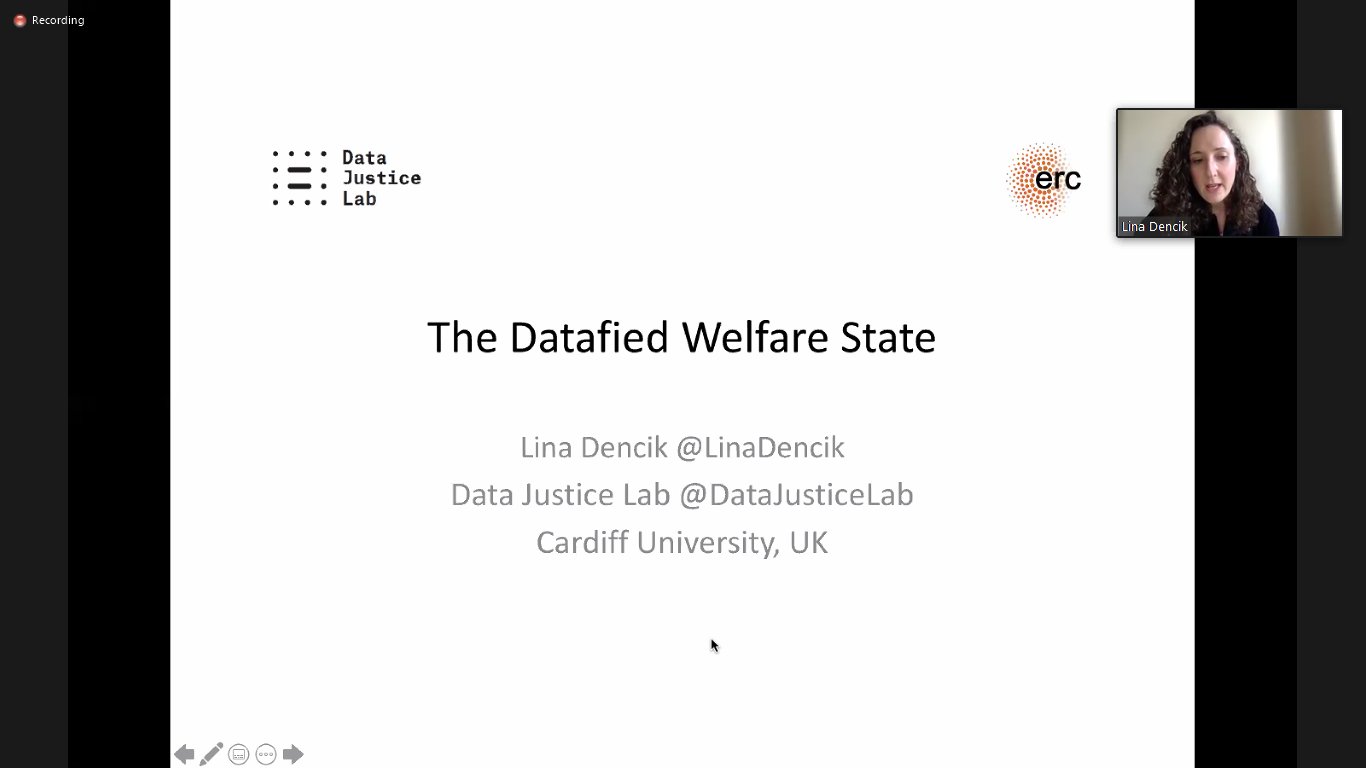
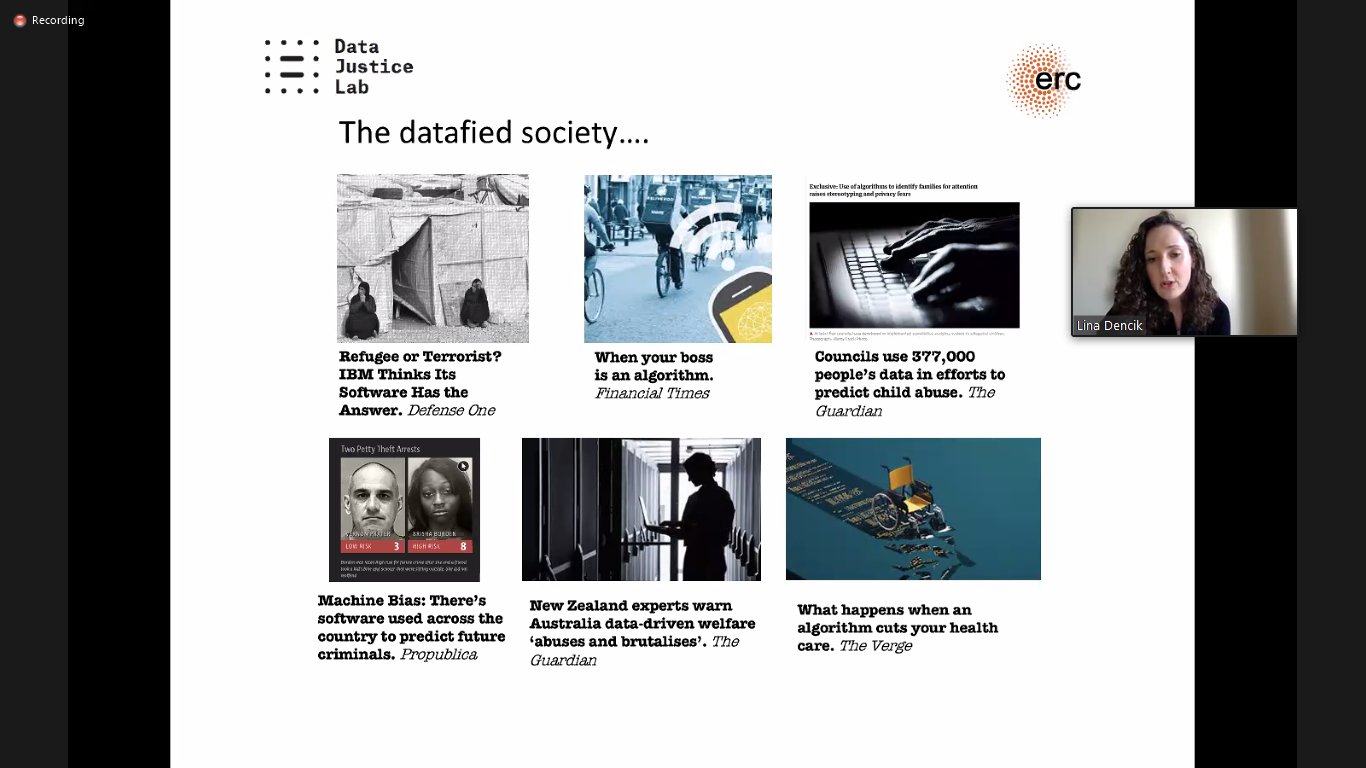
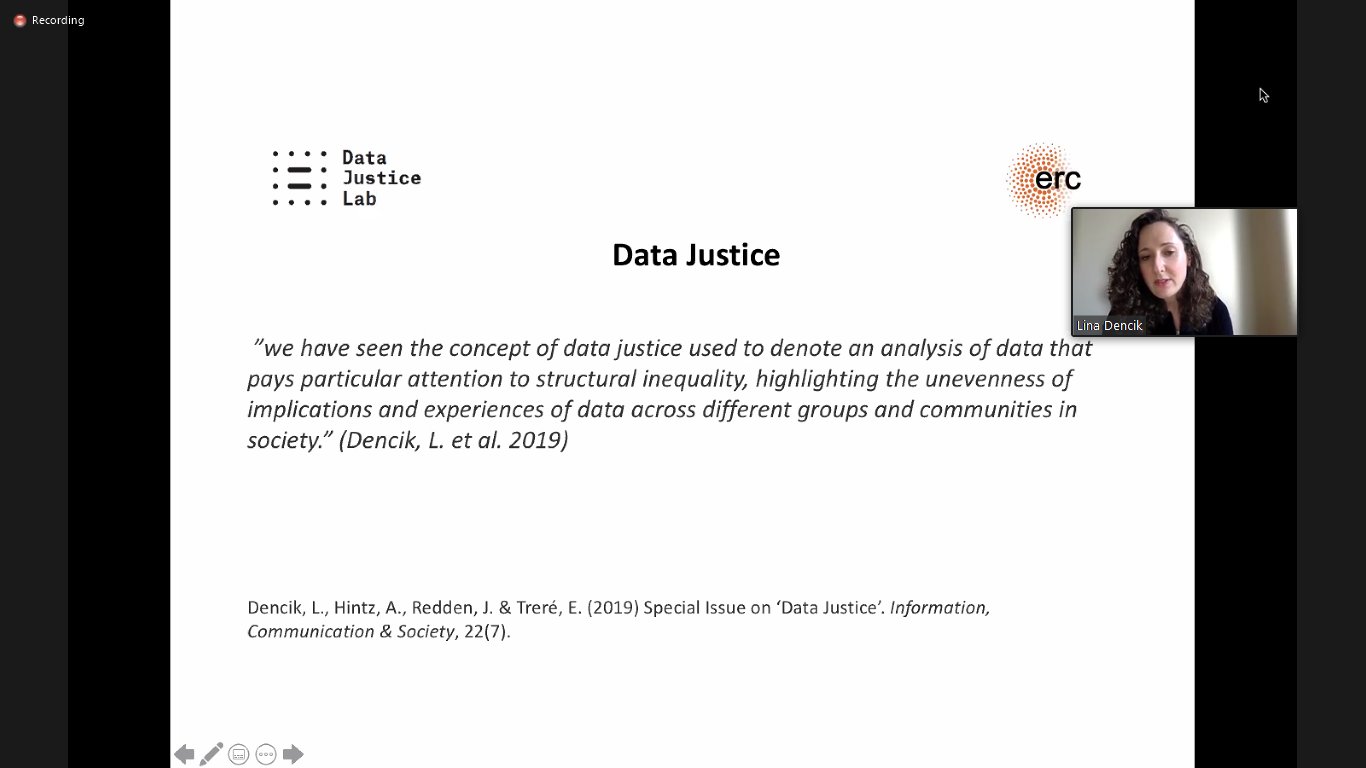
Many analyses of what happens within the realm of datafication revert immediately to highly ethicised questions around bias. Lina discussed how this collapses our possibility to critically interrogate what is happening in datafication because (for example) when algorithms racially profile people in inappropriate ways it is seen as a technical problem of bias that must be fixed – rather than a problem of the values of the people who built the algorithm. As an alternative to a focus on bias, Lina proposes that we think about data justice from a holistic perspective, thinking about the consequences for our economy and society, and move beyond looking at the technology as though it were static.
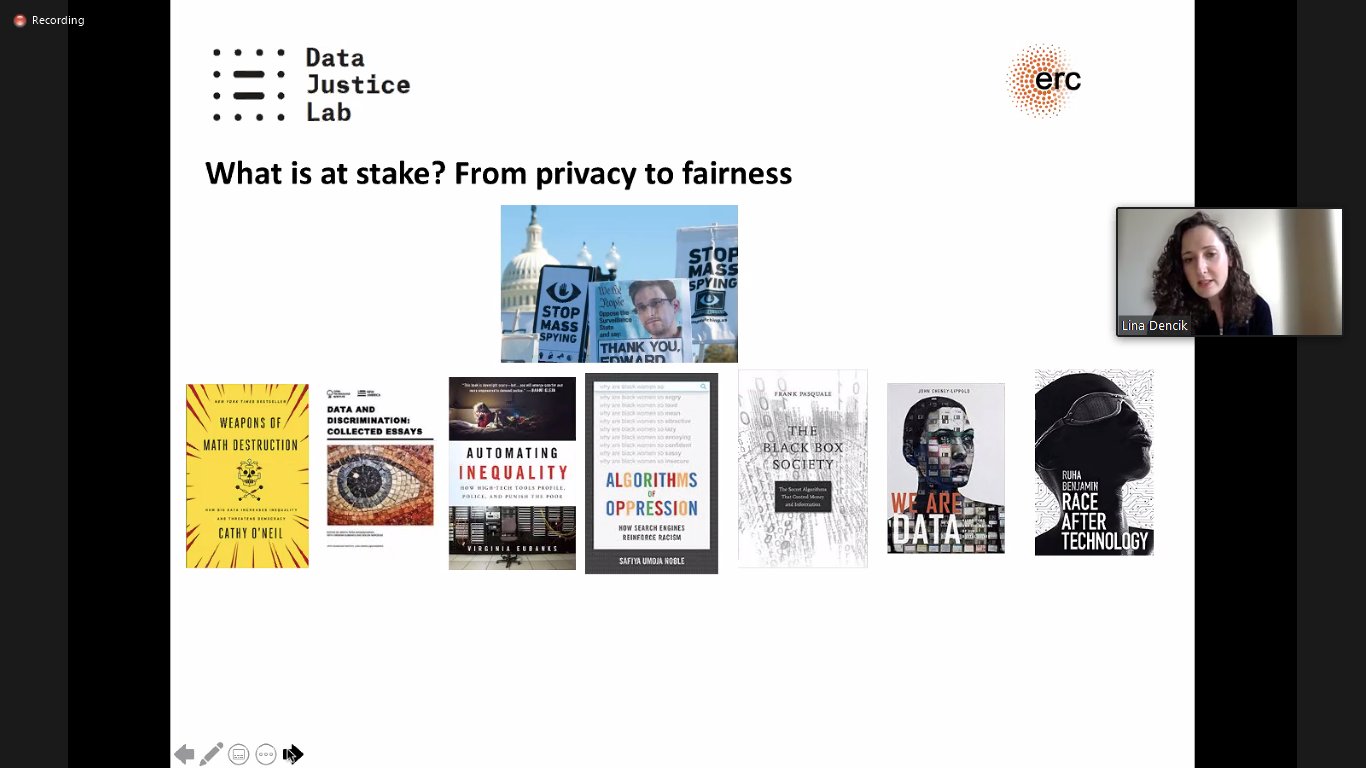
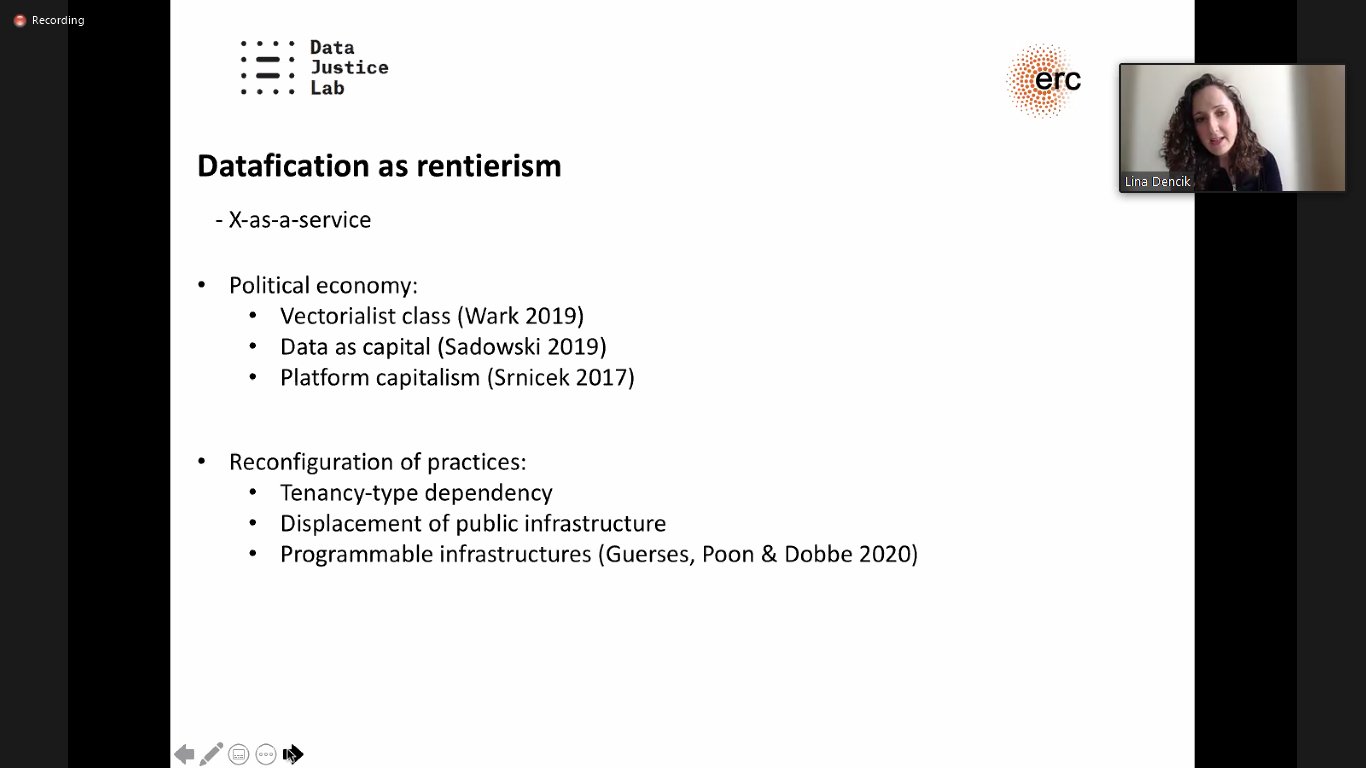
Lina also discussed the problem of data rentierism, whereby we must allow our data to be collected as a kind of ‘rent’ we pay for being able to continue to use services in the modern world. This forces us into a cycle of dependency on technical systems which can make it difficult for us to extract ourselves as time passes. Overall this talk was stimulating and engaging – and deals with an issue that only seems to become more pressing with time. Especially in the context of our contemporary moment where we are all dependent on datafied systems as we continue to work from home and socialise on Zoom.
Previous seminar: Theresa O’Keefe, Aline Courtois and Teresa Crew – Precarity.
Next seminar: Evelyn Brodkin in conversation with Mary Murphy and Joe Whelan – Street-Level Welfare.
